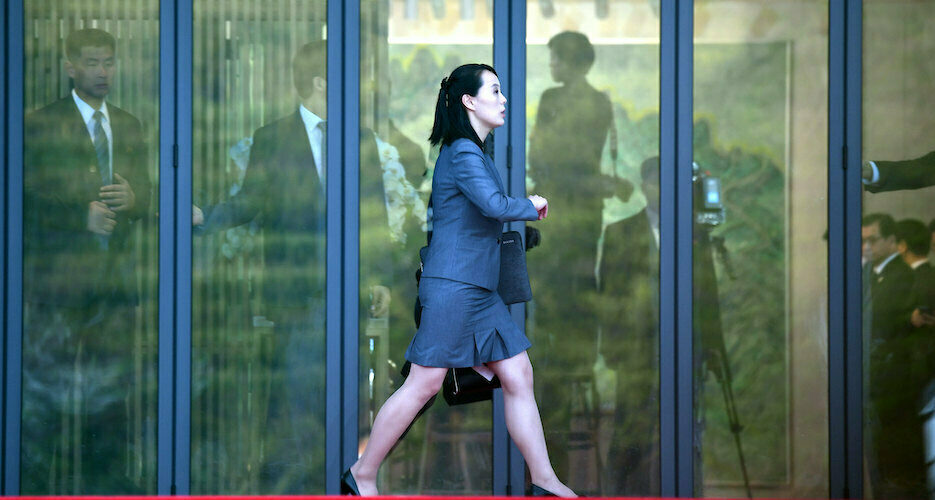Kim Yo Jong as North Korea’s new “party center”? Not so fast
Claims that a secret succession process may be underway must be taken with a pinch of salt
Joint Inter-Korean Summit Press Corps
Views expressed in Opinion articles are exclusively the authors’ own and do not represent those of NK News.
On June 14, the blog of a group called the “East Asia Research Center” came out with a sensational claim: Kim Jong Un may have appointed his sister as successor.
Views expressed in Opinion articles are exclusively the authors’ own and do not represent those of NK News.
On June 14, the blog of a group called the “East Asia Research Center” came out with a sensational claim: Kim Jong Un may have appointed his sister as successor.
Become a member for less
than $5.75 per week.
Unlimited access to all of NK News: reporting, investigations, analysis
The NK News Daily Update, an email newsletter to keep you in the loop
Searchable archive of all content, photo galleries, special columns
Contact NK News reporters with tips or requests for reporting
Get unlimited access to all NK News content, including original reporting, investigations, and analyses by our team of DPRK experts.
Subscribe now
All major cards accepted. No commitments – you can cancel any time.
© Korea Risk Group. All rights reserved.
No part of this content may be reproduced, distributed, or used for
commercial purposes without prior written permission from Korea Risk Group.












